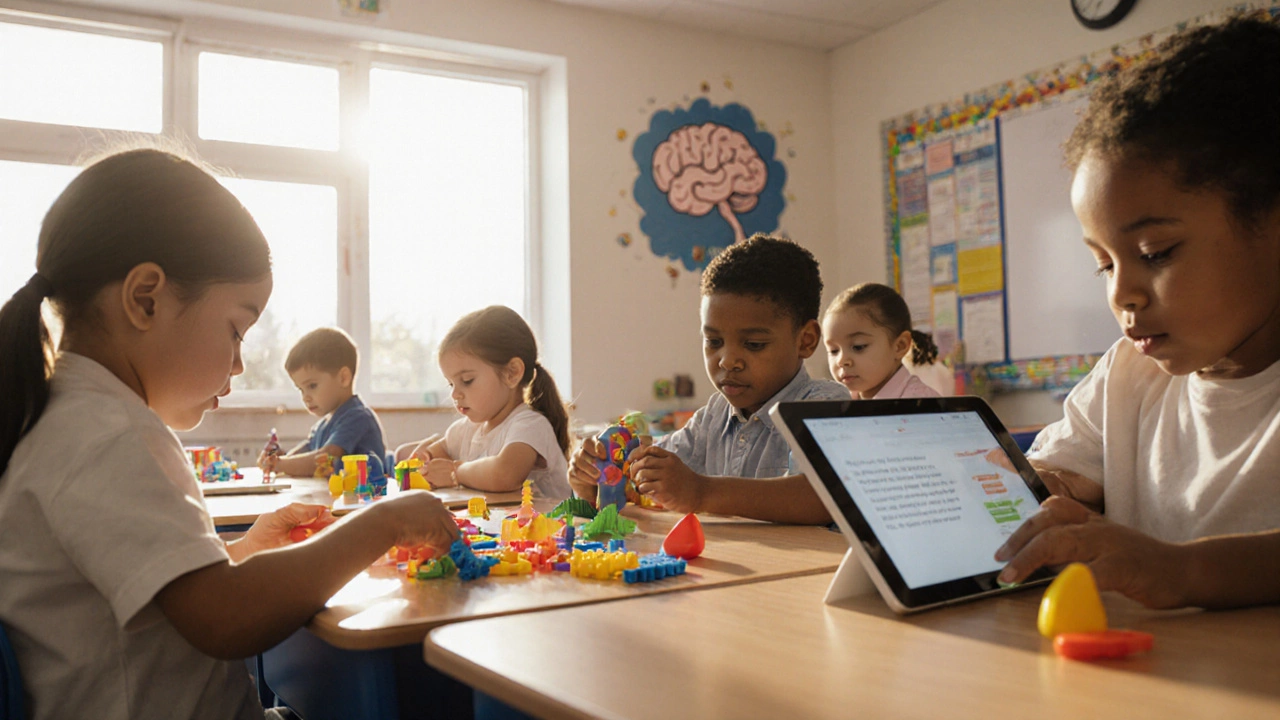Special Needs Support at St. Andrews Educational Institution, Shifnal
If you’re a parent, teacher, or student wondering how to make school work for a learner with special needs, you’ve come to the right spot. At St. Andrews Shifnal we keep things practical: clear plans, friendly staff, and tools that actually help every child succeed.
Understanding Different Needs
Special needs cover a wide range of challenges—from ADHD and autism to dyslexia, physical disabilities, and emotional wellbeing. The first step is to identify what a student needs, not just what the label says. Talk with the child, ask about what they enjoy and where they struggle, and involve a qualified therapist if you can. A simple observation chart can reveal patterns that guide the next steps.
Remember, two students with the same diagnosis often need very different support. One might thrive with visual aids, another with short, focused tasks. The goal is to match help to the individual, not to fit the child into a preset box.
Practical Strategies for Parents and Teachers
Here are three easy‑to‑start ideas you can use right away:
1. Break tasks into bite‑size steps. Write a short checklist for each activity – reading a paragraph, solving a math problem, or packing a bag. Check off each step together until it becomes a habit.
2. Use assistive technology. Apps that read text aloud, colour‑code notes, or organise schedules can turn a heavy workload into a manageable one. Our school’s IT team can set up devices and show you the best free tools.
3. Create a sensory‑friendly zone. A quiet corner with soft lighting, noise‑cancelling headphones, or a stress ball can help a student reset during a busy day. Even a simple ‘calm‑down’ card with breathing instructions works wonders.
St. Andrews also offers a dedicated Special Needs Coordinator who works with teachers to tailor Individual Education Plans (IEPs). The coordinator arranges regular check‑ins, monitors progress, and adjusts the plan as the child grows.
For parents, staying in the loop is key. Join our monthly Parent‑Support Meet‑ups where you can swap tips, hear from specialists, and get updates on new resources. You’ll find that a community of engaged families makes the journey less lonely.
Teachers can benefit from short professional‑development workshops run on campus. Topics range from classroom‑room management for ADHD to using visual schedules for autistic learners. These sessions are practical, no‑fluff, and fit into a busy school day.
Beyond the classroom, St. Andrews partners with local therapy services to provide speech, occupational, and counselling support on site. Booking an appointment is as simple as calling the school office and asking for the “Special Needs Referral”.
Finally, remember that progress isn’t always linear. Celebrate small wins – a finished worksheet, a successful group activity, or simply a smile after a tough day. Those moments add up and build confidence.
Got a question or need a customised plan? Reach out to our Special Needs Coordinator today. Together we’ll create a learning environment where every student can thrive.
Understanding Whether Special Needs Students Are Neurodivergent
Explore the difference between special needs and neurodivergent, discover overlaps, and get practical steps for supporting students in inclusive classrooms.
MoreWhen Do Learning Disabilities Typically Fade Away? Age Insights
Learn when learning disabilities typically improve, why ages vary, and how early support, interventions, and technology help learners of all ages manage their challenges.
MoreRecognizing and Understanding Mannerisms in Autism: A Practical Guide
Explore what mannerisms in autism look like, why they matter, and how to support autistic individuals through understanding unique gestures, routines, and behaviors.
MoreSpecial Needs Syndrome: Understanding the Different Types and What They Mean
Special needs syndromes don’t all look the same. This article breaks down what 'special needs syndrome' actually means in education, showing how different syndromes can affect learning, behavior, and everyday life. You’ll pick up facts about the most common syndromes, spot signs early, and find tips for supporting kids and families along the way. The goal is to make these terms less confusing and more useful for parents, teachers, and anyone who cares. By the end, you’ll know what really matters—how to help children thrive.
MoreHandling Children with Special Needs: Tips and Insights
Parents and educators often face challenges when it comes to handling children with special needs. This article provides practical advice and strategies to help these children thrive in educational settings and beyond. Learn about inclusivity in education, creating supportive environments, understanding individual needs, leveraging technology, and the importance of patience and encouragement. The goal is to empower you with knowledge and tools to make a positive impact.
MoreSupporting Special Needs Individuals as They Transition into Adulthood
The transition to adulthood for individuals with special needs involves a shift in educational focus, employment prospects, social interactions, and independent living options. These young adults face unique challenges as they leave the structured environment of schooling and move into adult life. Families, educators, and communities play crucial roles in ensuring that these individuals have the resources and support they need to thrive. It is important to address specific needs while promoting independence and self-determination.
MoreUnderstanding Common Disabilities in Special Education
Special education serves a variety of learning disabilities, making it essential for educators and parents to understand the most common ones. Learning disabilities such as dyslexia, autism spectrum disorder, and attention-deficit/hyperactivity disorder are frequently encountered in special education settings. This article explores these disabilities, providing insights into their characteristics and offering strategies for effective support. It aims to help readers recognize the importance of tailored educational approaches.
MoreUnderstanding Autism and Special Needs Education
Autism is a complex developmental condition that affects individuals uniquely, impacting their communication, behavior, and interactions. In the realm of education, autistic individuals are often categorized under 'special needs,' requiring tailored educational approaches to support their development. While some view this label as a necessary tool for accessing resources, others advocate for a more inclusive terminology. Exploring the nuances of this categorization helps unravel the diverse needs of autistic individuals in educational settings.
MoreEffective Strategies for Disciplining a Special Needs Child
Disciplining a special needs child requires understanding, patience, and tailored strategies. This article covers effective methods and insightful tips for parents and educators to guide a child's behavior positively. Learn about the importance of individualized approaches, setting clear expectations, and employing supportive techniques. Gain practical advice to foster cooperation while nurturing the child's development. Explore ways to create an encouraging environment that respects the unique challenges of children with special needs.
More








